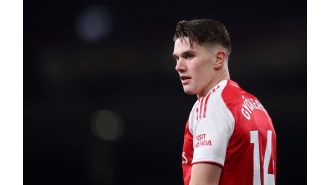Joker: Folie à Deux sends a defiant message to incels.
The Joker and his incel supporters are metaphorically facing justice in the film Joker: Folie à Deux.

Joker: Folie à Deux is a movie that doesn't hold back, taking aim at some of the die-hard fans of the first film. It's a scenario that has become all too familiar. The film is released and suddenly, social media is flooded with negative reactions. YouTube is filled with videos titled 'THEY DESTROYED THE ESSENCE OF THE CHARACTER' on your homepage. You check Rotten Tomatoes and see a plummeting score. Then, articles start popping up declaring its failure at the box office.
Last week, Joker: Folie à Deux was released and the same pattern emerged. I decided to see it over the weekend, curious to see if the loud, negative reaction it received was a sign of something worth checking out. And I have to say, from a technical standpoint, the film is a mixed bag. The cinematography and editing are beautiful, with stunning lighting and outstanding performances. However, in terms of the narrative, it falls a bit short. So, if you're looking for a strong story arc, you may be disappointed. And if you're not a fan of musicals, this may not be your cup of tea.
But what's interesting is how this film seems to have particularly irked a certain group of people, to an almost unhinged degree. It's not hard to find them, as they are the ones screaming in all-caps on YouTube or leaving angry comments on those videos, claiming that the movie has completely ruined the character's development from the first film, where he ended up killing people on live television.
Ironically, what became apparent to me after watching the film is that it was actually made with these people in mind. It seems to have been intentionally crafted to infuriate them.
When the first Joker film was released, there was a certain interpretation of the main character, Arthur Fleck, that resonated with this group. They sympathized with his loneliness and feelings of being ignored, and they related to his anger towards a society that they saw as decaying and limiting their potential.
The 2019 Joker quickly became an ideal symbol for online communities known as 'incels' or 'edgelords'. These predominantly white men resent progressivism and blame it for their lack of success at work and with women. Their online spaces are filled with racism and misogyny. For years, these incel communities have been linked to other internet subcultures, including men's rights activists, Pepe the Frog memes, and the Great Replacement conspiracy theory. The Joker, with his anarchic motivations, became a perfect representation for these movements.
Todd Phillips, the director of both Joker films, was well aware of the character's appeal to these anti-woke groups. In an interview before the 2019 film's release, he spoke about why he left the world of comedy: 'Go try to be funny nowadays with this woke culture. I'll tell you why [comedy doesn't work anymore], because all the f***ing funny guys are like, 'F*** this s***, because I don't want to offend you.'
Joaquin Phoenix's portrayal of the Joker became the ultimate embodiment of edgelord and incel ideals. A man pushed to the brink by a society that degrades him and doesn't take him seriously, and certainly doesn't find him funny. It's no surprise that, as Phillips hinted at, this version of the Joker became a symbol of the 'inevitable' backlash against progressivism. His infamous final line, 'You wouldn't get it', has been used extensively online since the film's release.
While many saw the movie as a commentary on mental health and a tragic character study, edgelords around the world rejoiced. They finally had a piece of mainstream media that spoke directly to them and appreciated them. There were even concerns that the film could inspire acts of violence, with some families of the victims of the Aurora theatre shooting expressing worry. Online rumors of attacks at Joker screenings began to spread, and some Reddit threads were shut down. But this only fueled the excitement within the incel community. Even though these acts of violence did not materialize, the idea of them happening was enough to keep the character at the forefront of these movements for years to come.
Which leads us to Joker: Folie à Deux. This film seems almost entirely dedicated to addressing the reaction and celebration of the villain in the 2019 film. In this sequel, the Joker and his followers from the first movie are literally put on trial. Harvey Dent, the prosecution, states on TV: 'There are people who are still willing to commit acts of violence in his name. They believe that he's some kind of martyr. Well, he's not.'
Throughout the film, these followers are portrayed as delusional losers, who end up getting run over while chasing after Fleck, professing their love for him. The promises of success and validation that come with being an incel are stripped away by the end of the film.
It's a bold and risky move by the filmmakers, one that was sure to upset some of the first film's passionate fans. Just like Mad Max: Fury Road before it, Joker: Folie à Deux takes a gamble in challenging incels and becomes a film that is mostly about that challenge, with little room left for a traditional plot. However, unlike Fury Road, the lack of plot in Joker 2 is not something that can be easily ignored due to the sheer enjoyment of the film. It can feel a bit dull and difficult to connect with, unless you're reveling in the 'f**k you' message it sends to incels.
So, is it a good film? In terms of drama, it may not be the strongest. But it made incels sit through a musical that ridicules their delusions, a musical that deconstructs the character they claimed as their mascot. It's a film that effectively tells them that their grandiose ideas will only lead to loss and self-destruction, not success. And for me, that's enough.
Do you have a story you'd like to share? You can email Jess at jess.email. Share your thoughts in the comments below.






